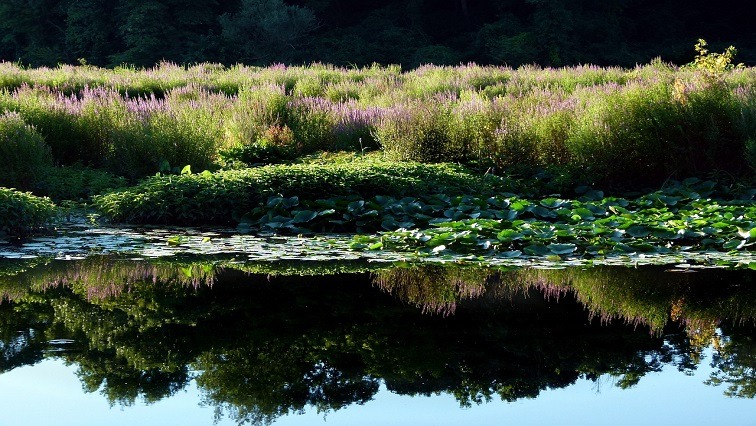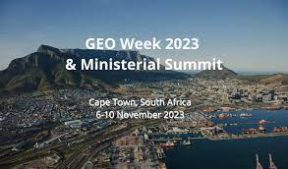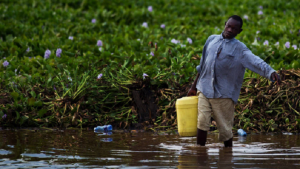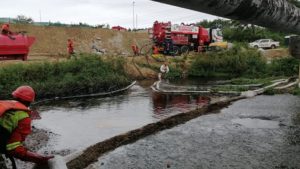By Minister Barbara Creecy
In a commendable move, the Department of Forestry, Fisheries, and Environment (DFFE) has recently launched a groundbreaking five-year programme, the Working for Water Programme, allocating a substantial R2.67 billion rand to combat the pervasive issue of invasive alien plants. This initiative not only addresses ecological threats but also promises to stimulate local economies, particularly in rural communities.
Biological invasions by alien plants have posed threats to biodiversity, ecosystem services, water resources, and livelihoods. These invasive species exacerbate environmental challenges, including floods, droughts, and wildfires, while also adversely impacting forestry and agriculture sectors. The ripple effects of these invasions extend to exacerbating the impacts of climate change and extreme weather events associated with global warming.
The South African National Biodiversity Institute’s 2019 Report on Biological Invasions also sheds light on the profound impact of invasive species on the country’s biodiversity and economy. The startling statistic that invasive trees use 3-5 percent of South Africa’s runoff water annually underscores the urgency of addressing this issue in a water-scarce country.
The Working for Water programme acknowledges the importance of restoring natural habitats to mitigate the effects of climate change, emphasizing the restoration of ecosystem services crucial during natural disasters.
The socio-economic implications of this five-year programme are noteworthy. By aiming to create 38,839 work opportunities annually for the next five years, the initiative not only addresses environmental concerns but also contributes to job creation, particularly in regions that often face economic challenges. This not only facilitates regular clearing of alien species but also supports the growth and development of local businesses, aligning with the government’s inclusive economy policies. What is heartwarming is that the bulk of these work opportunities will be created for rural communities throughout the country.
These work opportunities will be implemented using the Expanded Public Works Programme (EPWP) model. The commitment to contracting participants over a five-year period ensures sustained public employment, offering local small enterprises in rural communities a reliable revenue stream. Our government – working together with participants in the programme – will also seek ways to ensure the sustainability of these opportunities.
As the government that is serious about job creation, we will look at providing the participants with training to ensure that they eventually exit the programme and enter into formal employment. We will also look at ways we can assist participants to set up small enterprises for themselves as a way of ensuring the sustainability of the programme.
I have also launched the Gauteng Working for Water Programme to the value of R152 million to implement projects across the five Gauteng municipalities namely, the City of Tshwane, City of Joburg, West Rand, Sedibeng, and the City of Ekurhuleni. In Gauteng, the Working for Water Programme will clear 74 781 hectares over a period of five years, starting from 2023/2024. During this five-year period, we are aiming to create 13 615 work opportunities through the EPWP model.
Collaboration with entities such as the South African National Parks (SANParks) further amplifies the programme’s impact. With a budget of R947.71 million allocated to create 90,710 work opportunities through clearing 431,237 hectares over five years, this partnership underscores the cross-sectoral cooperation required for effective invasive species management.
The provincial profile of the budget, work opportunities and hectares for clearing over a five-year period:
| Province | Budget | Work Opportunities per annum | Work opportunities 5 year | Hectors to be cleared in 5 years |
| Eastern Cape | R297 000,00 | 5109 | 25545 | 145 500 |
| Free State | R 156 649,00 | 2695 | 13475 | 66 391 |
| Gauteng | R152 141,00 | 2723 | 13615 | 74 781 |
| KwaZulu-Natal | R209 320,00 | 3981 | 19905 | 84 424 |
| Limpopo | R211 482.00 | 1215 | 6075 | 48 860 |
| Mpumalanga | R147 642,00 | 587 | 2935 | 85 108 |
| North West | R186 447,00 | 1363 | 6815 | 125 395 |
| Northern Cape | R177 891,00 | 960 | 4 800 | 65 213 |
| SANParks | R947 710,00 | 18142 | 90 710 | 431 237 |
| Western Cape | R191 598,00 | 2064 | 10320 | 76 500 |
| TOTAL | R2 677 880,00 | 38839 | 194195 | 1 203 409,00 |
The Working for Water Programme stands as a testament to South Africa’s commitment to environmental stewardship and socio-economic development. By tackling invasive alien plants head-on, the nation is not only preserving its natural heritage but also creating a pathway for sustainable, inclusive growth.
As the programme unfolds over the next five years, it has the potential to become a model for other nations grappling with similar environmental challenges, showcasing the power of collaborative, long-term initiatives in building a resilient and prosperous future.
Barbara Creecy is the Minister of Forestry, Fisheries and the Environment






